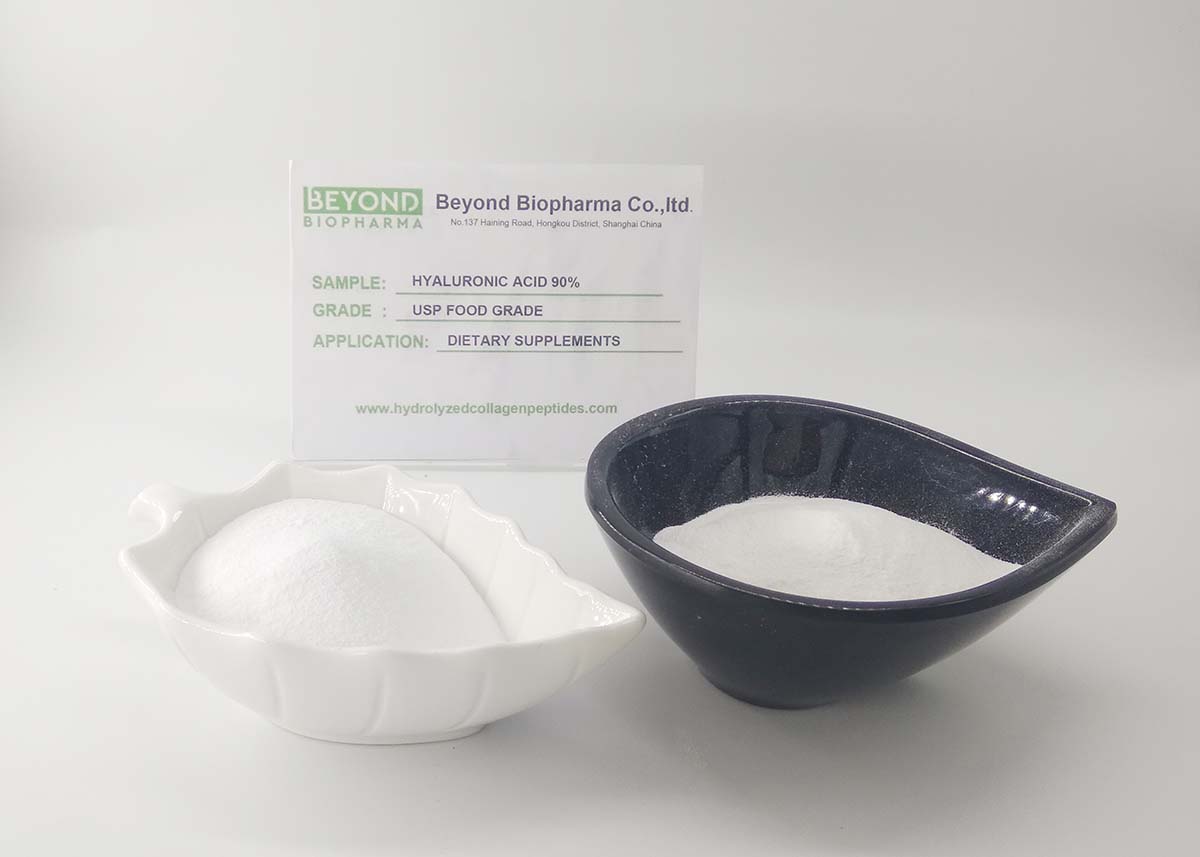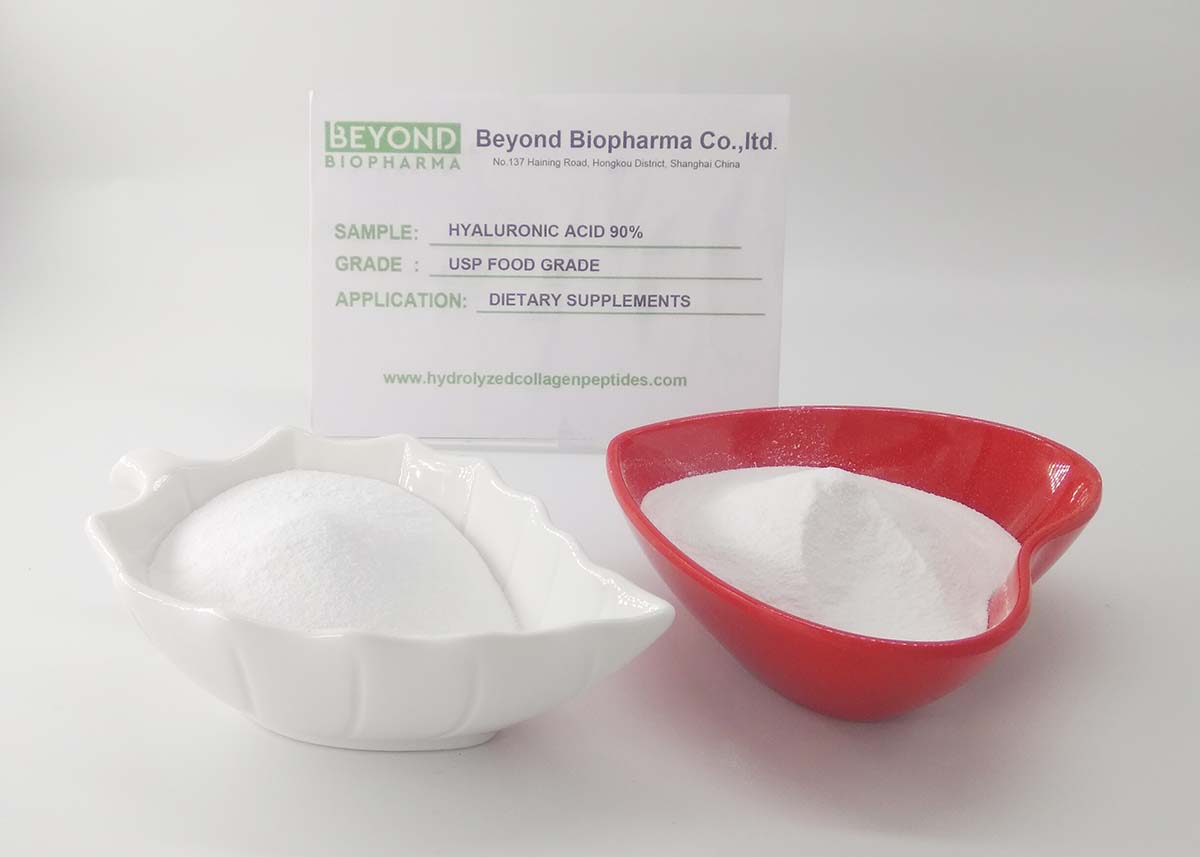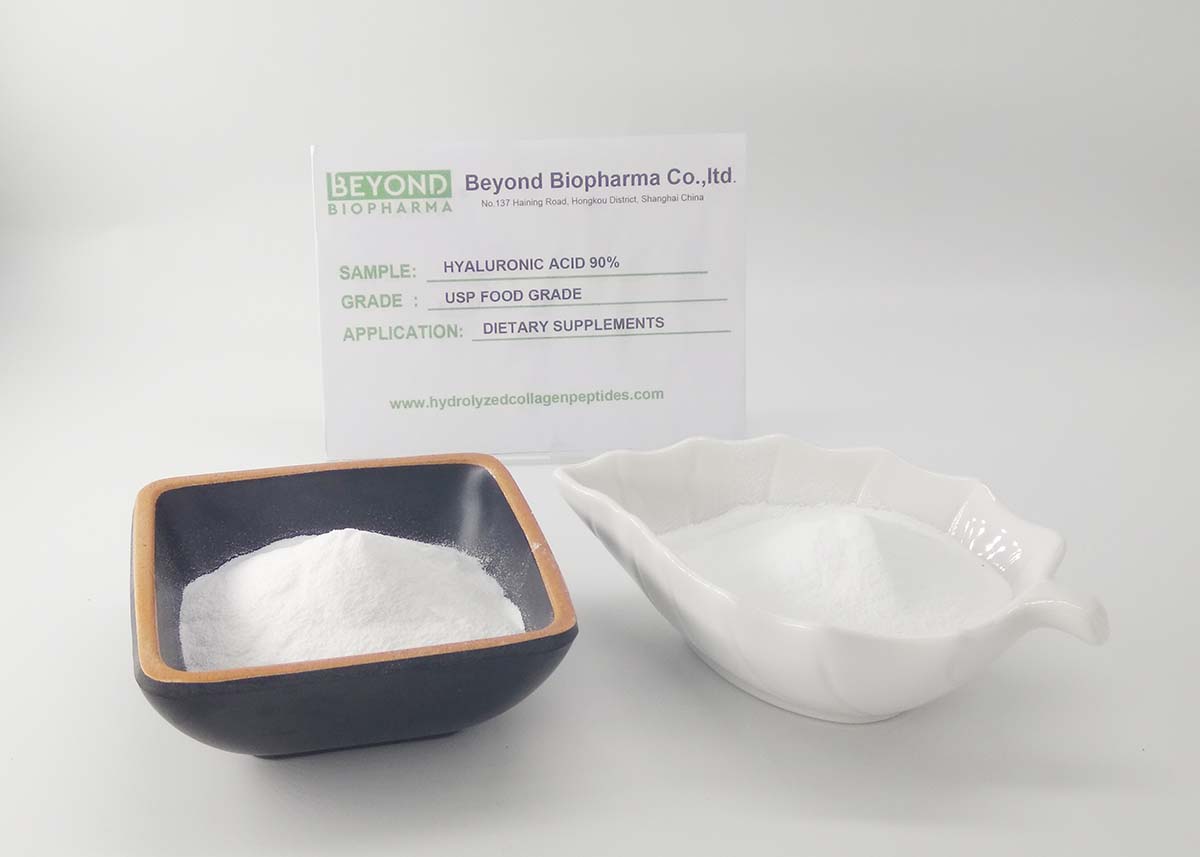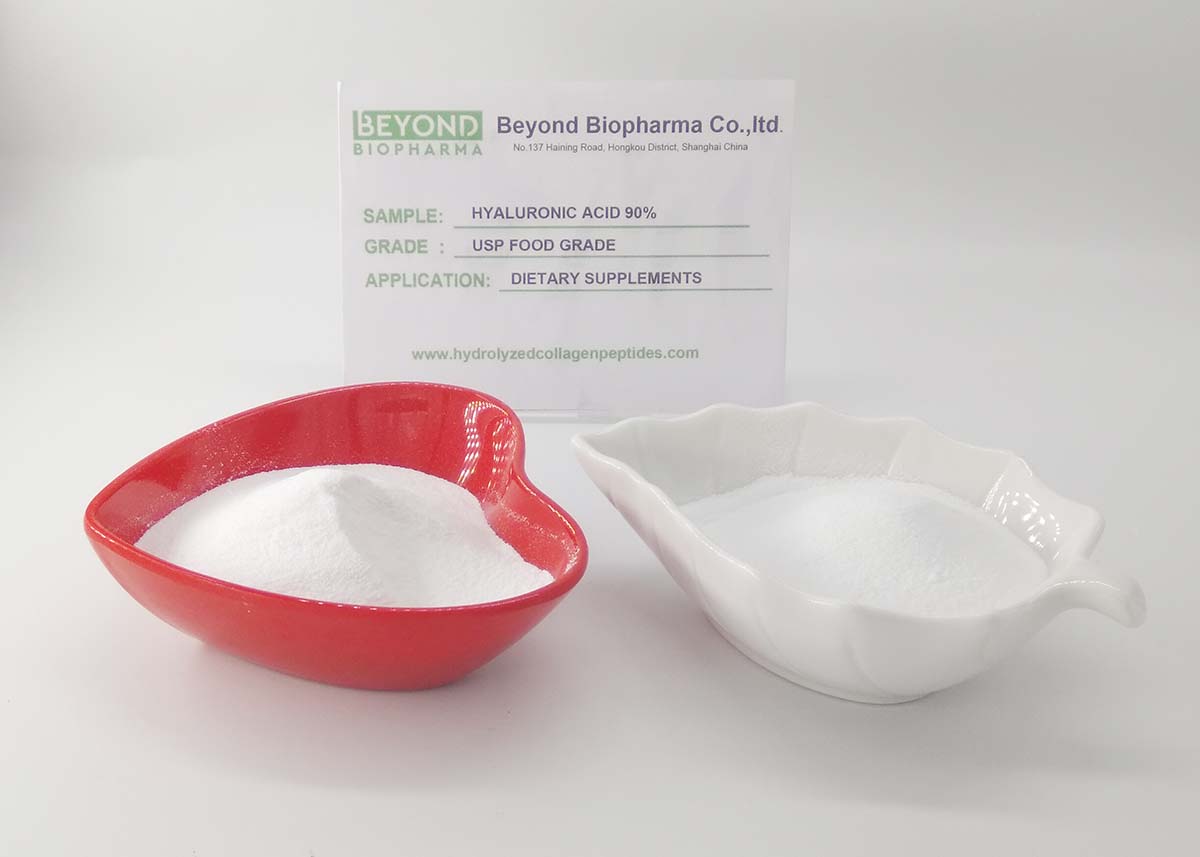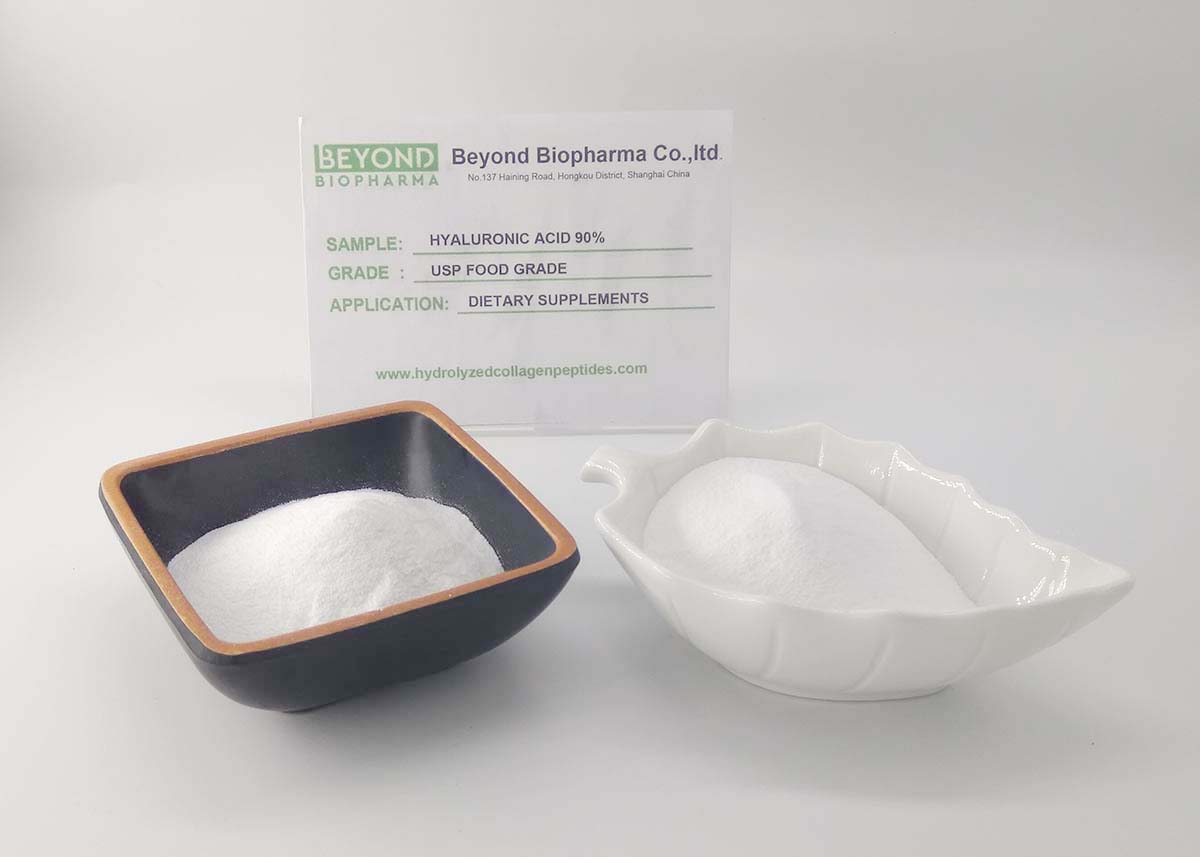Hyaluronic Acid: Understanding the 3 Types
Hyaluronic acid has gained immense popularity over the years for its incredible benefits for the skin. It has become a staple ingredient in many skincare products and treatments. But did you know that there are actually three different types of hyaluronic acid? Each type offers unique advantages and plays a crucial role in maintaining healthy, youthful-looking skin. In this article, we will explore the three types of hyaluronic acid and their benefits.
- 1. High Molecular Weight Hyaluronic Acid
- 2. Low Molecular Weight Hyaluronic Acid
- 3. Cross-Linked Hyaluronic Acid
- 4. What are sodium hyaluronate used for?
High molecular weight hyaluronic acid is the largest form of the molecule. It has a higher molecular weight and larger size compared to other types of hyaluronic acid. Due to its large size, it forms a protective layer on the skin's surface, creating a barrier to prevent moisture loss. This type of hyaluronic acid provides intense hydration, making the skin plump and supple.
When applied topically, high molecular weight hyaluronic acid can improve the skin's moisture levels, reducing the appearance of fine lines and wrinkles. It helps to restore the skin's natural barrier function, making it less prone to environmental damage. Additionally, it promotes a smoother and more even skin texture.
Low molecular weight hyaluronic acid has a smaller molecular size compared to high molecular weight hyaluronic acid. This type of hyaluronic acid has the ability to penetrate deeper into the skin layers. It enhances the skin's ability to retain moisture and promotes collagen synthesis, leading to improved elasticity.
Low molecular weight hyaluronic acid is particularly beneficial for addressing fine lines, wrinkles, and sagging skin. Its smaller size allows it to reach the deeper layers of the dermis, where it can stimulate the production of collagen and elastin, the proteins responsible for skin firmness and elasticity. Regular use of products containing low molecular weight hyaluronic acid can help to restore the skin's youthful appearance and improve overall skin tone and texture.
Cross-linked hyaluronic acid is a modified form of hyaluronic acid that has been chemically altered to increase its longevity within the skin. This type of hyaluronic acid is commonly used in dermal fillers and injectables to enhance facial features and restore volume in areas affected by aging.
Cross-linked hyaluronic acid provides immediate volume and hydration to the skin, resulting in a plumping effect. It can be used to fill in deep wrinkles and fine lines, augment lips, and contour facial features. The cross-linking process slows down the natural breakdown of hyaluronic acid, allowing longer-lasting results compared to unmodified hyaluronic acid.
In conclusion, hyaluronic acid is a versatile ingredient that offers multiple benefits for the skin. The high molecular weight type creates a protective barrier and provides intense hydration, while low molecular weight hyaluronic acid penetrates deeper to promote collagen synthesis and improve elasticity. Cross-linked hyaluronic acid is commonly used in fillers and injectables to achieve instant volume and rejuvenation. Understanding the different types of hyaluronic acid can help you choose the right products or treatments to meet your specific skincare needs. Whether you're looking to hydrate, volumize, or reduce the signs of aging, hyaluronic acid has got you covered.
| Material name | Hyaluronic Acid Powder |
| Origin of material | Bacteria Fermentation |
| Color and Apperance | White powder |
| Quality Standard | In-house Standard |
| Purity of the HA | >90% |
| Moisture content | ≤10% (105°for 2hours) |
| Molecular weight | Around 0.2 -0.5 Million Dalton |
| Bulk density | >0.35g/ml as bulk density |
| Solubility | Perfect solubility into water |
| Application | Oral Supplements for skin care |
| Shelf Life | 2 years from production date |
| Packing | Inner packing: Sealed Foil bag,1KG/Bag, 5KG/Bag |
| Outer packing: 10kg/Fiber drum, 27drums/pallet |
What is Sodium Hyaluronate used for? This issue is gaining traction in the beauty and medical industries as people discover the incredible benefits of this multifunctional compound. Sodium hyaluronate is a salt derivative of hyaluronic acid that has become a popular ingredient in a variety of skin care products, supplements, and medical treatments. In this article, we explore the many applications of sodium hyaluronate and shed light on its remarkable properties.
Sodium hyaluronate is primarily known for its ability to retain moisture, making it an important ingredient in moisturizers, serums, and other beauty products. When applied topically, it forms an invisible film on the skin that helps boost hydration levels and prevents moisture loss. Helps create a plumped, youthful appearance by reducing the appearance of fine lines and wrinkles. Plus, Sodium Hyaluronate helps improve skin texture, making it softer, smoother, and more elastic.
In addition to skin care, sodium hyaluronate is used in various medical applications. One of its most important uses is in the field of orthopedics, where it is injected directly into joints to relieve individuals suffering from arthritis and joint disease. By lubricating joints and reducing inflammation, sodium hyaluronate injections can improve mobility, reduce pain, and even delay the need for surgical intervention.
In ophthalmology, sodium hyaluronate is used as a lubricant for eye drops and artificial tears. Its unique properties make this solution effective in moisturizing the eyes and providing relief for those who experience dry eyes or discomfort from prolonged computer use or exposure to environmental irritants.
In addition, sodium hyaluronate is found in dental products such as mouthwash and toothpaste. Its ability to retain moisture and promote tissue healing makes it ideal for relieving oral conditions such as dry mouth, gum irritation and canker sores. Using sodium hyaluronate in dental care products helps protect and nourish oral tissues, ensuring optimal oral health.
Another exciting area where sodium hyaluronate shows promise is in the field of aesthetic medicine. It is widely used as a dermal filler to enhance facial features and restore volume loss associated with aging. By injecting sodium hyaluronate into specific areas of the face, healthcare professionals can help reduce the appearance of wrinkles, restore facial contours, and achieve a more youthful appearance. This non-invasive procedure is popular for its immediate results and minimal downtime.
Additionally, sodium hyaluronate-based products and supplements are often recommended for its benefits in promoting joint and bone health. Research shows that sodium hyaluronate stimulates the production of collagen and proteoglycans in the body, which are important components in maintaining strong and healthy bones and joints. Regular consumption of sodium hyaluronate supplements can help improve joint mobility, reduce joint pain and increase flexibility.
In conclusion, sodium hyaluronate has become a revolutionary compound with a wide range of applications in the beauty and medical industries. Its ability to retain moisture, promote tissue healing and improve joint health makes it a popular ingredient in skincare, medical and supplements. Whether you're looking to rejuvenate skin, reduce joint pain or enhance facial features, sodium hyaluronate provides a multifunctional solution with dramatic benefits. Embrace the power of this incredible compound and unlock its potential to transform your health and appearance.
Can I have small samples for testing purposes ?
1. Free amount of samples: we can provide up to 50 gram of hyaluronic acid free samples for testing purpose. Please pay for the samples if you want more.
2. Freight cost: We usually send the samples via DHL. If you have DHL account, please let us know, we will send via your DHL account.
What are your Ways of shipment?
We can ship both by air and be sea ,we have necessary safety transportation documents for both air and sea shipment.
What is your standard packing ?
Our standarding packing is 1KG/Foil bag, and 10 foil bags put into one drum. Or we can do customized packing according to your requirements.
Founded in the year of 2009, Beyond Biopharma Co., Ltd. is an ISO 9001 Verified and US FDA Registered manufacturer of collagen bulk powder and gelatin series products located in China. Our production facility covers an area of totally 9000 square meters and is equipped with 4 dedicated advanced automatic production lines. Our HACCP workshop covered an area of around 5500㎡ and our GMP workshop covers an area of around 2000 ㎡. Our production facility is designed with annual production capacity of 3000MT Collagen bulk Powder and 5000MT Gelatin series Products. We have exported our collagen bulk powder and Gelatin to around 50 Countries all around the world.
Post time: Aug-23-2023
